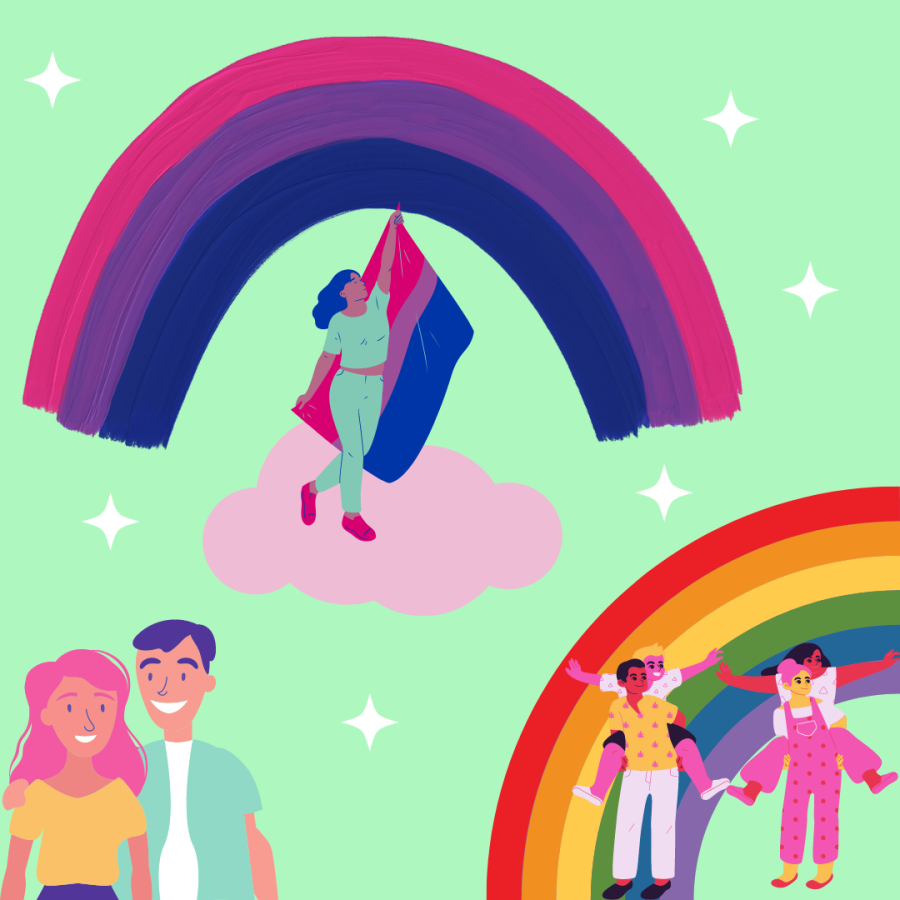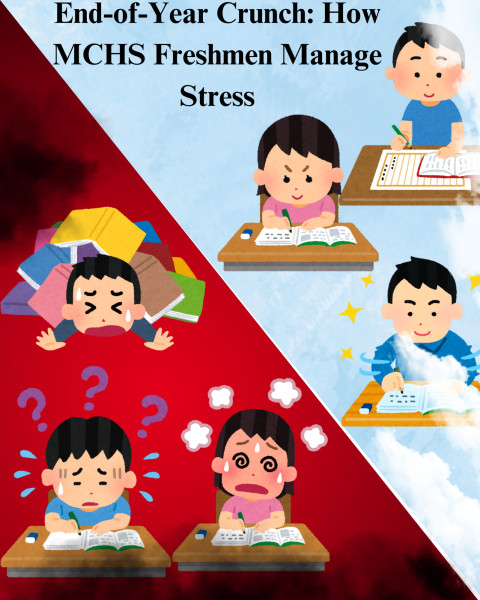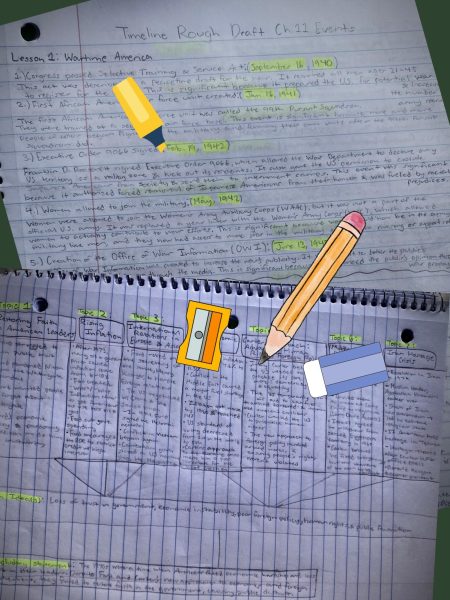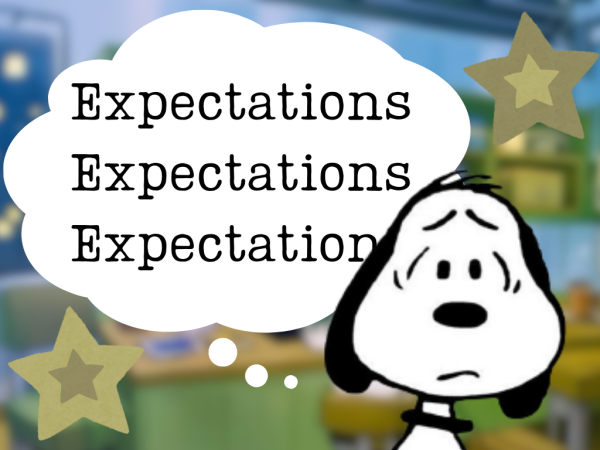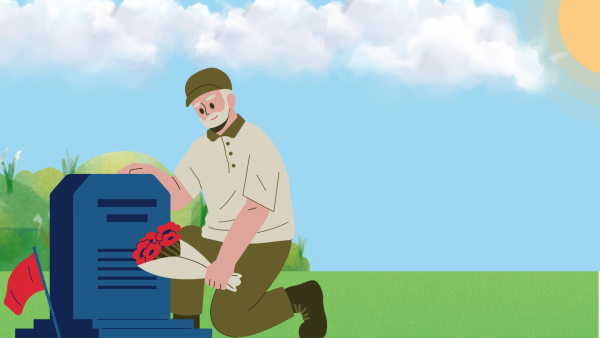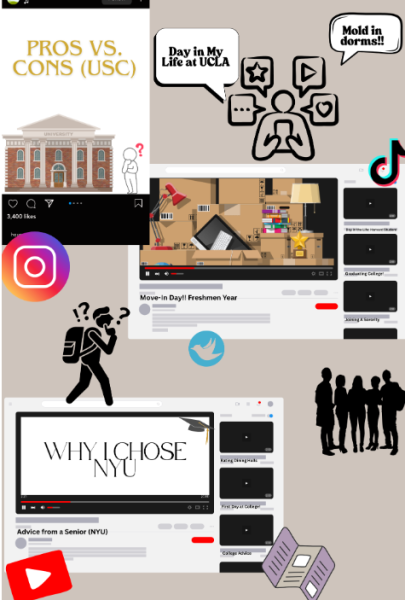Don’t be a statistic- Erasing biphobic misconceptions
Ashley Santana (Created with Canva)
Nowadays, bisexual people are judged and criticized for their sexual orientation.
Bisexual people can be discriminated against not only by homophobic people, but also by members of the LGTBQ+ community.
Bisexuality is a sexual orientation that means one can be attracted to two or more genders. This umbrella term has often been used to describe people who are attracted to men and women only. Historically, it has been used to describe people who are attracted to people of the same sex and people with different gender(s). Since this is a sexual orientation, it also has to do with feelings, not just sexual attraction.
According to Entitymag.com, biphobia refers to the “dislike or prejudice against bisexual people.” People of any sexual orientation can be biphobic including queer people, meaning biphobia exists in both straight and LGBTQ+ communities. Stereotypes and misconceptions have been made of bisexuals based on their sexual orientation.
Middle College High School counselor Arlene Quinonez stated, “It really puts a person down. When I hear those things, it’s not even like they’re asking the person to understand more, or asking the right questions to the person to get to know them more and to find out more. They’re stereotyping others without really informing themselves and without really realizing that they’re hurting somebody else. I think it affects a person just to hear comments like that being made, like you’re some kind of different being. I think that can be very hurtful. I can imagine it can make someone see themselves in a negative way, in a negative light, especially if they’re constantly having to deal with that. And it’s not fair to have to see yourself in a negative light, because all you hear is negativity.”
People who identify as bisexual are often invalidated for it and are constantly needing to prove that their sexuality is real because people refuse to believe it exists. An example of this can be found in the show “Sex and the City.” Attitude.co.uk calls out the show for its characters having biphobic beliefs, claiming bisexuality wasn’t real and that you had to pick a side and stay there. Sean was a bisexual man Carrie, one of the main characters, dated in season three, and she broke up with him because of his sexual orientation, making comments such as, “It’s not hot. It’s greedy.” Biphobic beliefs include thinking bisexual people are greedy and unable to be monogamous. Bi-erasure ( attempts to invalidate bisexuality) is portrayed when Samantha’s friends called it a “phase” and claimed she wouldn’t last in the relationship she was in with a woman because she was bound to miss being with a man. Her friends dismissed it as a “phase” and said she wasn’t a lesbian, she just “ran out of men.”
An anonymous source said, “I have both witnessed and experienced biphobia. Usually biphobia is seen online where people like to express themselves. In comment sections, I’ve seen people debate the “idea” of bisexuality as if they can twist the definition of what the term is. Whenever I see this my initial reaction is always the same, I get mad first because it’s frustrating to see people not understanding basic concepts. But other times I get frightened because some biphobic comments stick to me and then I have to fight with myself that I’m valid and that there’s nothing wrong with me.”
TikTok comment sections are where I’ve found biphobia the most. Users use the hashtag #biphobiadoesntexist to raise awareness about how normalized biphobia is. Some people claimed that biphobia does not exist because bisexual people have “straight privilege” when dating someone of the opposite sex, where the person they are interested in assumes that straight relationships allow them to have more support and acceptance. However, this is not always the case. In general, when a TikTok creator’s audience discovers that they identify as bisexual, their reactions are not always very accepting and in fact, the opposite. Examples of this might include comments such as, “You’re bi, so you have straight privilege,” or “just pick a side.” Bisexual creators have also gotten intrusive questions regarding their sexual orientation such as, “Do you prefer girls or boys?” and “Does this mean you’d have a threesome?”
Junior Alexa Rodriguez stated, “I think people from the LGBTQ [community] may have prejudice against bi people because maybe because they have an ‘opportunity’ to not be discriminated against. I don’t know if that makes sense, like maybe let’s say there’s a gay man and he has his partner, which would be another man, and there’s another couple in where a man is bi and his partner is a woman. People are most likely going to target the gay man rather than the bi man, because they think ‘Well his partner is a woman’ even if both of them are still attracted to men. There are people within the community who don’t want to accept bisexual people. Maybe there’s some resentment towards bisexual people from other people from the LGBTQ community because they can still love someone, the opposite gender, without being attacked for it while someone whose only preference is the same gender can’t have it as easy. I wouldn’t know too much about this topic but this is my take on it.”
Moreover, biphobia can also come from people in the LGBTQ+ community. There have been TikToks made that tell lesbians that it’s okay to only date other lesbians as well as being justified if they wanted to not date a bisexual person. This is not considered a preference. It is biphobic because it discriminates against people due to their sexual orientation. Bi girls are often judged and criticized for having a preference for guys because people will say they are “attention seeking.” This false idea created a stereotype for all bi women. A stereotype for bi men is that they’re gay and not bisexual because they have a preference for men. More stereotypes include bisexuals being “half gay” and “half straight” but bisexuality is an identity. The LGBTQ community has struggled to understand the meaning of being bisexual. Bisexuals have struggled with being erased, misidentified, rejected, oversexualized, and being thought of as having more privilege. A survey showed over 50% of women would not date a man who has been with another man. Another survey found that 34% percent of women have been with another woman but only 19% of them would date a bisexual person, feeding into the objectification of bisexual women. This stigma that revolves around bisexual men enforces the idea that they are gay rather than bisexual. They are often turned away from women because of their sexual orientation. This might be the same reason as to why their relationships with women end, like how “Sex and the City” portrayed it.
Quinonez stated, “It’s important for all of us to be educated and know about one another because that’s how we can best support each other. That’s how we can best be there for each other, and try to understand each other if we don’t educate each other. It’s important to bring awareness that we educate one another so that we can all better understand and support each other instead of being quick to judge. One can easily say, ‘Hey can you teach me more about it? Because honestly, I don’t know. So can you help me learn about it?’ Instead of making our own assumptions and definitions, let’s ask questions and educate ourselves.”
It’s important to state that a person’s sexual orientation does not change based on the gender of the person they are dating because the person they are dating does not identify them. It is a valid sexual orientation and not a phase or a “pit stop.” That’s the thing about sexual orientation; you’re allowed to change your mind. You’re not subjected to one sexual orientation even if you identified as it.
An anonymous source said, “If we aren’t informed about these types of things the problem would only get bigger and eventually be too late to solve. Especially for biphobia, the sooner we tackle this issue, the more people we save from misery, and sadly, the end of their lives.”
































